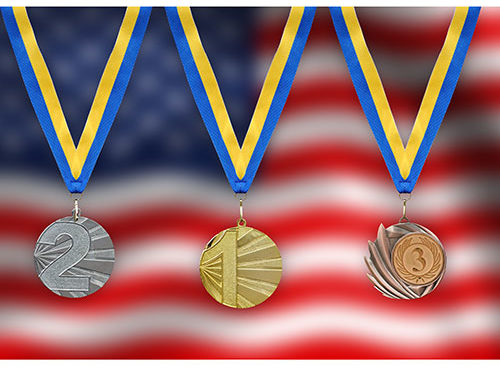Andy tests his Code of Points!
I’ve gotten various types of feedback about my Code of Points (some very encouraging and some a bit harsh…), so I decided that the only way for me to prove whether a system like this could possibly work is to put it into action. So I did! I’ve been watching lots of routines from the last two years and judging them according to my rules. It’s been amazingly fun and easy to do, as I can truly watch the routine in admiration and enter scores according to my “gymnastics sense.” I feel this gymnastics sense is a big part of what’s missing in the current code.
After trying it out, I gotta admit…I REALLY like it!
Here are some points I want to emphasize first:
- I was amazed at how easy it was to simply enter the scores in each category into a spreadsheet (Microsoft Works). All I had to do was enter two formulas…one that adds up the scores from each category and another that divides the result by 5. As soon as you enter the individual score for each category, the end result is calculated automatically. It takes seconds to do.
- I used absolutely no pen or paper to come up with the scores. Even the difficulty is extremely easy to calculate in your head. Once again, I was able to enter the scores for each category within seconds, since almost all are based on an overall impression that can be arrived at almost immediately upon watching the routine. In fact, I was able to judge over 10 routines within minutes, and the best part is it’s not mentally draining at all and actually quite enjoyable.
- On television and in a competition arena, the scores for each category should be displayed so the audience can see how the judges evaluated them in each area. I truly believe this system will pull the audience in much MORE than the current system. After all, even relatively uninformed observers are capable of coming up with their own subjective scores since they are based on overall impression. Of course they may not be as “accurate” as those of an expert, but legitimate opinions would be widespread and would generate far more interest in the sport. In our current system, fans would have to know every single deduction and every single skill value (along with a calculator) to have any hope of trying to evaluate a routine.
- I was shocked at how accurate I felt the results were in terms of the ranking of the gymnasts. I was very curious to see if, after entering seven different numbers for each gymnast – four of which are subjective – the final results would place the gymnasts in the appropriate spots. I was pleasantly surprised to see that I was in total agreement with how the rankings turned out. It was pretty cool!
- You’ll notice that there are very few scores in the 9-range, but remember: These routines weren’t designed for my scoring system; they were designed for a system that doesn’t really reward artistry, virtuosity, and originality. If the routines were created with my scoring system in mind, obviously they would be likely to score higher.
- The scores I came up with only go out to tenths, but remember that in an actual competition, all the subjective scores would be averages of several judges, so the scores would be broken down to thousandths of a point. This would also eliminate many of the ties we might see when I’m judging alone.
- Please be respectful with your critiques. My system obviously involves a lot of new concepts and requires a very open mind about how this sport should be evaluated. I’m very happy with how it turned out, and feel that it emphasizes ALL the aspects of a routine that should go into achieving a perfect 10. The four subjective categories obviously create a lot of room for different opinions and possibly some controversies, but that’s exactly what I want. I’d much rather be discussing with someone how beautiful and original a routine was rather than precisely how many degrees a gymnast was from a handstand, or whether a step should be a 0.1 deduction or a 0.3 deduction.
- Obviously practice will increase the accuracy of judging with this system. After seeing more and more routines and looking for the artistry, execution, originality, and virtuosity in each one, a judge will become better and better able to distinguish the gymnasts in each category and assign appropriate scores. As with any scoring system, practice and experience will increase proficiency. Fortunately nowadays we have YouTube to give us as much practice as we could ever want!
Coming next…let’s judge one of the best and most controversial event finals of all time using my scoring system…the 2008 Olympic Uneven Bars Final!



Leave A Comment